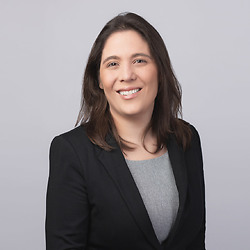Supreme Court Oral Argument Offers Insights on the Future of the TCPA
The Supreme Court’s eagerly awaited May 6, 2020 oral argument in Barr v. American Association of Political Consultants afforded Telephone Consumer Protection Act (TCPA) watchers a rare opportunity to hear the high court discuss the controversial robocall statute, but delivered more for First Amendment enthusiasts than close followers of the TCPA.
At issue in the case is a 2015 amendment to the TCPA that exempted federal debt collection calls from the TCPA’s restriction on placing automated calls to wireless phones without consent. The American Association of Political Consultants, a group of political and public affairs professionals with an interest in political calling, took the position that, as amended, the TCPA makes content-based distinctions as to permitted speech and, as a result, should be subject to a strict scrutiny review under the First Amendment. They argued further that the TCPA’s speech restrictions could not survive such a review and urged the Court to strike down not just the 2015 amendment to the TCPA but to find the statute itself unconstitutional. The government, for its part, took the position that the 2015 amendment constituted economic regulation, rather than regulation of speech and should be subject to review under a reasonableness standard. Under this more relaxed standard, the government argued, the 2015 amendment should be upheld. If the Court should find the 2015 amendment unconstitutional, the government further argued, the remedy is to sever the amendment from the TCPA and preserve the rest of the statute.
More information about the case is available here. While a decision is still months away, questioning at oral argument gives rise to a number of observations about where the Court and the TCPA may be headed.
-
Outcome. Questioning at oral argument suggested the outcome foreshadowed by the briefs: the Court striking down the TCPA exception for federal debt collection but severing that provision from the statute, preserving the TCPA otherwise intact. That said, oral argument questioning is not always indicative of where the Justices will come out.
-
Popularity of the TCPA. The Chief Justice and Justice Kavanaugh were candid about affording the perceived popularity of the TCPA and the unpopularity of robocalls considerable weight in their severability analysis. Both expressed reluctance to adopt a remedy to address the unconstitutionality of the federal debt collection exception that would result in striking down an almost thirty-year-old law they regard as popular. This candor about taking into consideration the general public disdain for the speech in question – robocalls – was particularly surprising in a First Amendment case.
-
Role of Congress. Along the same lines, the Justices also did not seem to give much credence to the idea that, if the TCPA was struck down, Congress could respond by adopting robocall abatement legislation that passes constitutional muster.
-
Narrow TCPA Focus. While the argument offered plenty of red meat for First Amendment enthusiasts, it offered less of broad interest to TCPA stakeholders. Given the narrowness of the question presented, almost none of the myriad and unresolved TCPA questions driving the explosion of class action litigation received any attention. Indeed, none of the Justices showed any awareness of the problem of class action abuse. Counsel for the American Association of Political Consultants mentioned litigation abuse only once in response to a question from Justice Kavanaugh that took as a given the TCPA’s popularity.
-
Relief for Political Callers. It was not lost on the Court that finding the federal debt collection exception unconstitutional but severable, thereby preserving the TCPA, would afford no relief to the appellants, political callers whose interest lay in communicating core political speech without the threat of TCPA litigation. However, some of the questioning hinted at possibilities for future relief. One line of questioning suggested that a law preferring speech regarding government debt collection did not implicate the kind of speech concerns that typically animate the Court’s First Amendment jurisprudence. A possible implication is that potential future cases involving the application of the TCPA to preclude un-consented automated political calls to wireless phones might cause the Court to give more serious thought to finding the TCPA unconstitutional. Such a case is not hard to imagine in light of the litigation about a Montana law banning political robocalls we blogged about here. Another line of questioning noted that the Federal Communications Commission has the authority to grant exceptions to the TCPA’s requirements and that pursuing such an exception might offer better prospects for relief.
In the ordinary course, we would expect the Court to issue an opinion this summer. However, conduct of the Court’s business is anything but ordinary in light of the COVID-19 pandemic. Oral arguments are currently being conducted by telephone. Accordingly, it is not unreasonable to anticipate some delay in the issuance on an opinion.
Listen to the oral argument here.




